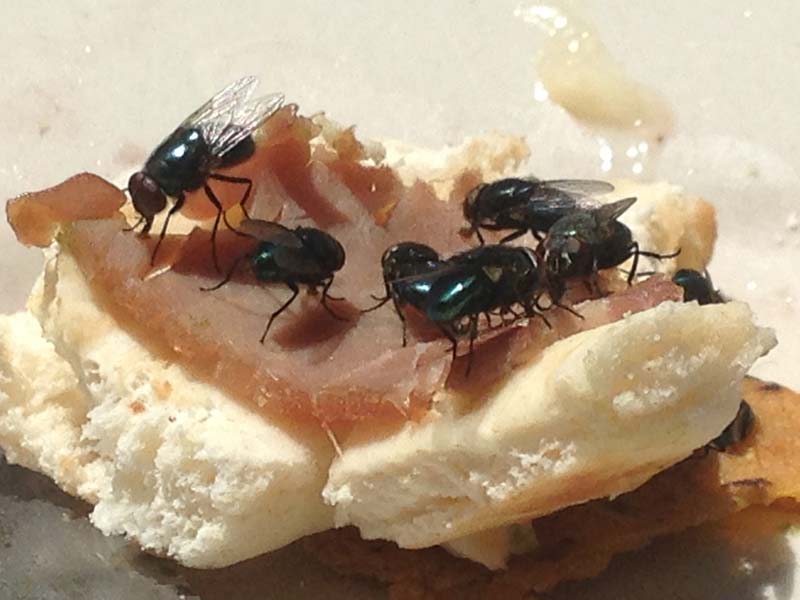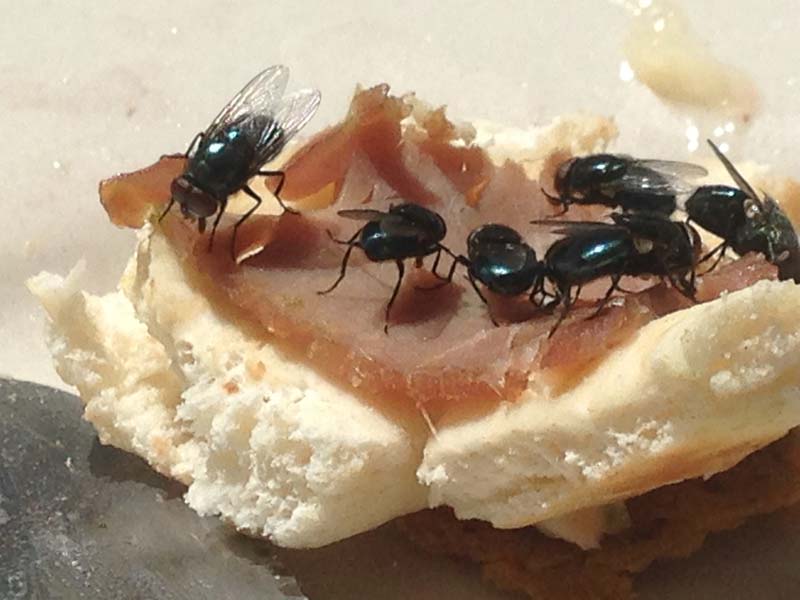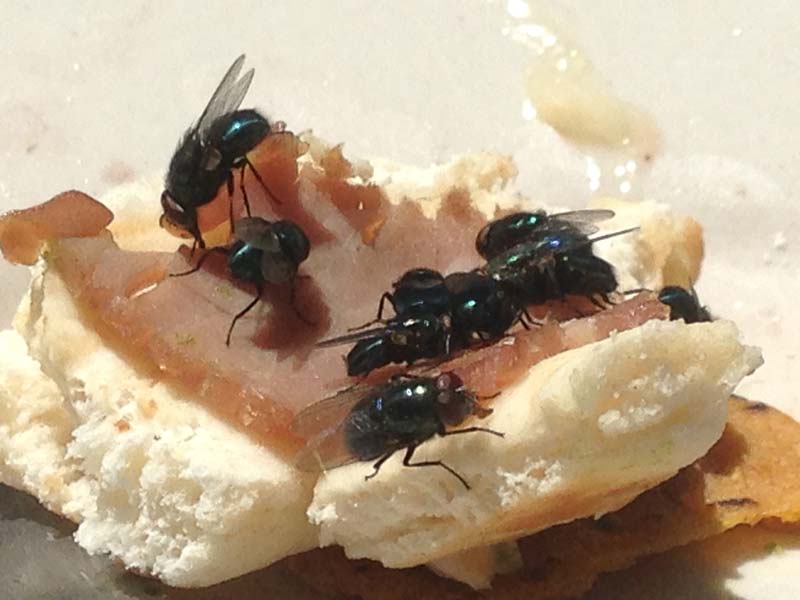July 12-15, 2014: I was afraid in leech country* but was told You must give something back to the forest. This may seem an instant manifesto but there is no such thing as insect poetics that isn’t also floral, microbial, cephalopodic. You are still attempting intersubjectivity with a thing not human, training yourself to be of the field rather than in it. Cede. The leeches were everywhere, threads on wet ground, obese on the legs of cattle. In a bowl of salt they release the blood they’ve sucked, they shrivel up and die. I wore the protective socks and spray but ended up with a leech on my stomach, my forehead, and in my eye. One hardly feels a hematophage in one’s eye until it fattens, someone notices and pulls it out. Lisa Robertson writes that Noise is a confusion of figure and field and this may apply also to bloodsucking or a kind of poetics in which the experience of meanings is so wild any path you cut through it cuts through you. In a site-generated poem I wrote Somehow volume is more believable when the leech makes love to you when you deplete, volume because suddenly you are aware of your internal lyric space as a physical quantity, a biosphere shrinking because irrelevant. But this moment is very small for soon or a few short months later, learning the Old English words līc (body, corpse), gelīc (like, similar), and lǣce (physician), all of which sound like leech, you make yourself large enough to explain that inexplicable country you thought had undercut you. That forest was a raucous space with many species but the leech was silent among them and silently hungry. This is not how poets usually are but on a gradient of wishfulness: why not.
*Sakleshpur district, India
—Aditi Machado
We make an intersection /
of insection / is that a c section
/ it’s at least a scar / a red hourglass
it’s not at all / not that hat / a tall
sharp spider / widow in the window
o hush / keep it down now / this is scary / voices carry
o White Angled-Sulphur Butterfly/ or maybe leaf /
we put the baby in the leaf / instead of basket
some Otec mesh / diet formaldehyde / popey Fiat
smutched a praying mantis / what side of the glass
mealworm slurry / everybody come on uh be happy uh be full
///
We can do another hundred. This pope is slinging soilent to remind us how small he are. Did my student write me a lyric from Insecticide? Did you catch me catching it on Speeder? This is right up Chris’ alleys, Matthews and Hayes. Yesterday I thought a ladybug was made of one black spot and one red. Someone righter caught me. Where is redder in the classic catholic monastic mastic? Half of the boards have termites, half just have mites. Raid kills bugs dead proves poetry kills ad men undead. Is this supposed to be actually about insects or incest. Or actually about. We just made a human there. Before human, bug. Egg. Pupa, larva, all the pope’s men. All the seamen betwitched. Every time she touches the earth I worry the spider. Every time we desert to the desert I watch the snake. This word has whirred and wiry worms. Worse than that. Wild human, never a fly has touched her face, never a swatter blotted her sugar father, everyone says everyone swallows a thousand spiders a day a hundred times a day. How long has it been? One day.
—Sandra & Ben Doller
Before you are right or wrong about something, there is just the hot vacuum of air around what you are going to say. In the interest of transparency: I call one cycle of sound a sleeplessness. In that insects usurp my authority. Or cicada, cicada, cicada (I once mistakenly labeled locust), which despite rumors has a mouth in its armor. Sound depends on soundlessness; a sleeplessness is also silent. Or the desiccated lizard I found on a bridge yesterday.
In that Paul Celan writes in and of sound, beyond sense, beyond sense, through sound: from smokemouth to smokemouth. In that authority is not absolute, but is still located in sleeplessness: cicada, cicada, cicada. Or the dogs have chased a giant roach under my sofa.
In that insects and ghosts are the planet’s most populous denizens. Sidewalk, city center, savannah, swamp, interstice. To say an insect is sibilant is false. In that insect authority is sleepless even when silent. Is chemical and crisp.
—Kathy Goodkin
Insects are all instinct. There’s never been an insect that’s made a decision, and it’s a mistake to think otherwise. It’s a chemical, a hormone, a brainwave that tells them how to act and when; it might as well be a code.
If an insect is out hunting or climbing or doing other insect things and inadvertently slices its stomach, or whatever is in its torso, and fat comes out of the hole, the insect will start eating the fat. The reason is simple: the insect is wired to seek out fat and eat it. The difference between fat in the world and fat from itself is a difference that doesn’t exist.
In this way a poet is an insect. Ever since humans turned to language for art, we’ve known that the poet does not decide how the poem moves or breaks, or even when or if it exists. A poet does not think; she acts. And when it comes time, if something in her body tells her, “eat this,” she will without question, and she won’t know if it’s her own viscera. It probably is.
But she doesn’t react this way because she’s a cannibal or trying to self-destruct. She’s simply closing the space between the world and herself. The poem absorbs that space; the poem is the chemical that erases the difference.
—Rebecca Farivar
The Pantoum of Gregor Samsa: A Taxonomy of Insect Poetry
From the point of view of poetics, it is much to be regretted that Gregor Samsa was a bureaucrat and not a poet. Had he been a poet, his transformation would have been all the more shocking to him, since a bureaucrat is already a species of termite. From Gregor Samsa’s point of view, then, it is much better that he was a bureaucrat, for when he turned into an enormous insect of uncertain provenance, he hardly felt a thing. From the point of view of poetics, however, there are more important issues. Had he been a poet on Wednesday evening, working on the draft of a new political pantoum, and then gone to bed and waked an insect, would he have finished the poem in the same way he would have done otherwise? Or would it now turn into something more insectile and less human, and exactly what would that have meant? If being an insect rather than a poet would have made no difference to the poem, then what does it mean to be an insect? Is an insect merely another form of human being, and therefore a bureaucrat? If that turns out to be the case, then it is quite pointless to attempt to create a taxonomy of insect poetry. Rather we should simply create a taxonomy of human poetry, with Shakespeare at the top and your Uncle Wendell at the bottom and call it Insect Poetry: A Taxonomy. For did not Shakespeare write “MOTHer MOTHer I am killed, MOTHer,” and did not your Uncle Wendell operate the local Orkin franchise? And in that capacity, did he not deal with bureaucratic details, while at the same time eradicating the moths from your mother’s bureau? His poisons were richer than Gregor Samsa’s pantoum, and more profitable.
—TR Hummer
The first thing I did when I got in the car every morning one summer was press play on the CD player. The same CD would spin up and the same first track would fill and become the already hot air in exactly the way cicadas do. There were no cicadas but the distinction(s) collapsed anyway. This song is the first thing I think of when I think of insect noise.
We were playing tennis when a large wasp flew across the court and got snagged on the chainlink fence and stumbled around there, half hanging onto the fence and half flapping its wings when necessary to supplement its grasp. “Was it carrying something? What is it carrying?” We looked closer and it was carrying a headless but otherwise entire cicada.
Rasping external chitinous leg sounds. Background noise, still noise. Leg eardrums(!).
I remember an online discussion about the distinction between noise and music. No such distinction, I argued, they have the same purposes and they use the same strategies and even the same materials and they are the same. But I was wrong, it’s so obviously more complicated than that, and more importantly so what?
The entomologists at the museum where I work often seem to be more interested in databases, taxonomies, and information systems than in bodies and behaviors and metamorphoses and certainly sounds. Informatics surrounds us just as capably as insects do, and entomologists are positioned as well as anyone to take up the logic of identity with one’s surroundings. I think this is partly the poet’s situation within language (and other spheres), but why isn’t it everyone’s? Oh wait never mind, this isn’t your question, you’ve got your vocal cords and your lyric mode in your wonderful resonant throat between your head and your heart.
—Jon Woodward
The sun winces into it, into its bald green cap, down where it clicking, licks right leg le
ft leg. Scrambling like billy goats on the rock, one shines into the next into the sling of
the earth. Or it is in the air, then landing, its life syringing into the stalk, the stalk shak
ing, Like
the wick that fires inside me when she holds me, laughs into my body, in the dark. One
thumbing through grass has a jewel in its thorax. If its belly is crushed, it turns to berr
ies: do not do it. Another licks through a comb, white with lust. Another plays music wi
th its own
body, its life pulsing. Who can coax it towards the window? Will it stay here until mor
ning? This one carries our memories between its forewing and its hindwing, hunting in
the rain under forks of leaves. There is a painting on your back. There are 30 deities paint
ed on
your back, you with your triplet of eyes. You carry what’s left, going to this edge hold
ing the plum of the earth you suck the pit clean you suck the pit clean you suck the pit cle
an you suck it clean
—Nomi Stone
The Beauty of a House Fly
In my workshop this semester, we spent the first class naming the animal or animals we most associate with our poetics. As we went around, I made a quick edit from the animals I usually say and told everyone that mine was the house fly. It’s not too surprising to anyone who knows me well, but it was a bit surprising to my students. But flies were my first friends. In elementary school, I was the weirdo outcast that no one would play with and was part of this program called The Idea Lab, where we raised several generations of fruit flies. I spent nearly every recess period after lunch visiting my real friends—the flies—in my teacher’s classroom. Everything about them I loved, but I loved most of all looking at their eyes under a microscope, with its odd expanse of landscape, like itself the look of a land from far above in an airplane, under the microscope, red and orange and filled with a strange sun.
Later, as a teenager, because I wanted to be a scientist, I worked in a Neurobiology lab at the local medical school and my job was to first pinpoint the virgin houseflies (which were easy to do with their translucent light green skin and dark markings on their abdomens) and then take these virgins out, subdue them with carbon dioxide and suck out their brains for later staining, as the lab was studying a whole host of ways the structure of their brains related to their behaviors. I spent many a sunset of my life, sitting and executing coldly my old friends.
The other day in class right before we began to look at new poems, a fly buzzed in and made a big show of flying near me then landing on the table, twirling around in its death dance, and then running undercover into the folds of my class folder. I was a little freaked out. What did this mean about my poetics? I know that fly was trying to tell me something, but I don’t know what. I think he wanted to say, no you’re not a poet anymore, you’re a sociopath. And it’s true it’s true, I am.
—Dorothea Lasky



—TC Tolbert